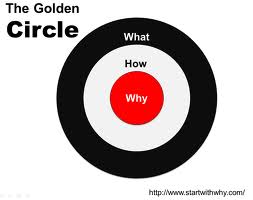Archive for March 6th, 2012
Consumers don’t buy WHAT you do. They buy WHY you do it.
 How do you explain why some people are able to achieve things that seem impossible? Why is Apple considered to be the most innovative company on the planet, year after year? And why is is that we will buy almost anything from them in spite of the price? And why is it that the Wright Brothers figured out the problem of powered flight, when more qualified and funded teams were competing directly against them? In one recent TED Talks, Simon Sinek gives his thoughts on why that is.
How do you explain why some people are able to achieve things that seem impossible? Why is Apple considered to be the most innovative company on the planet, year after year? And why is is that we will buy almost anything from them in spite of the price? And why is it that the Wright Brothers figured out the problem of powered flight, when more qualified and funded teams were competing directly against them? In one recent TED Talks, Simon Sinek gives his thoughts on why that is.
A few days ago I discovered a great TED Talks video that helped us answer a few of these questions. Given by Simon Senek, he discussed a pattern that he found in a few great leaders. The talk is good. The idea is simple.  And the concept innovative. And that concept is called is called the “Golden Circleâ€
For Simon, the circle looks like this:  “Why”, in the center, surrounded by “Howâ€, surrounded by a larger circle, “Whatâ€.
Sinek uses this circle to explain why some leaders are able to inspire where others aren’t. He says that,
“Everybody knows “what†they do 100%. Some know how they do it. But very very few people or organizations know WHY they do it. And I don’t mean to make a profit, that’s the result. It’s the “whyâ€, why do you do it, why do you get out of bed in the morning, and why should people care.”
And he argues that, “Consumers don’t buy what you do. They buy why you do it.”
And given that, the goal is not just to hire people who need a job, but who believe what you believe. Who do it for the same reasons you do. The WHY.
He went on to discuss to discuss the Wright Brothers and how neither Orville or Wilber had a college degree and how they had fierce competition that was more qualified and more funded.
In the end, the people who believed in the dream (the WHY), worked with blood and sweat and tears, the others, just for the paycheck. And that’s what made the difference.
Today, I challenge everyone (including myself), especially those in business school and in law school, to think a little less about the jobs we want and salaries we’ll make (the WHAT) and think a little more about why we take them (the WHY). To consider our deepest reasons for doing things and do better to couple that with the choices we make. Â And maybe then, we will be able to put our deep passions to use and unlock our greatest potential upon graduation.







